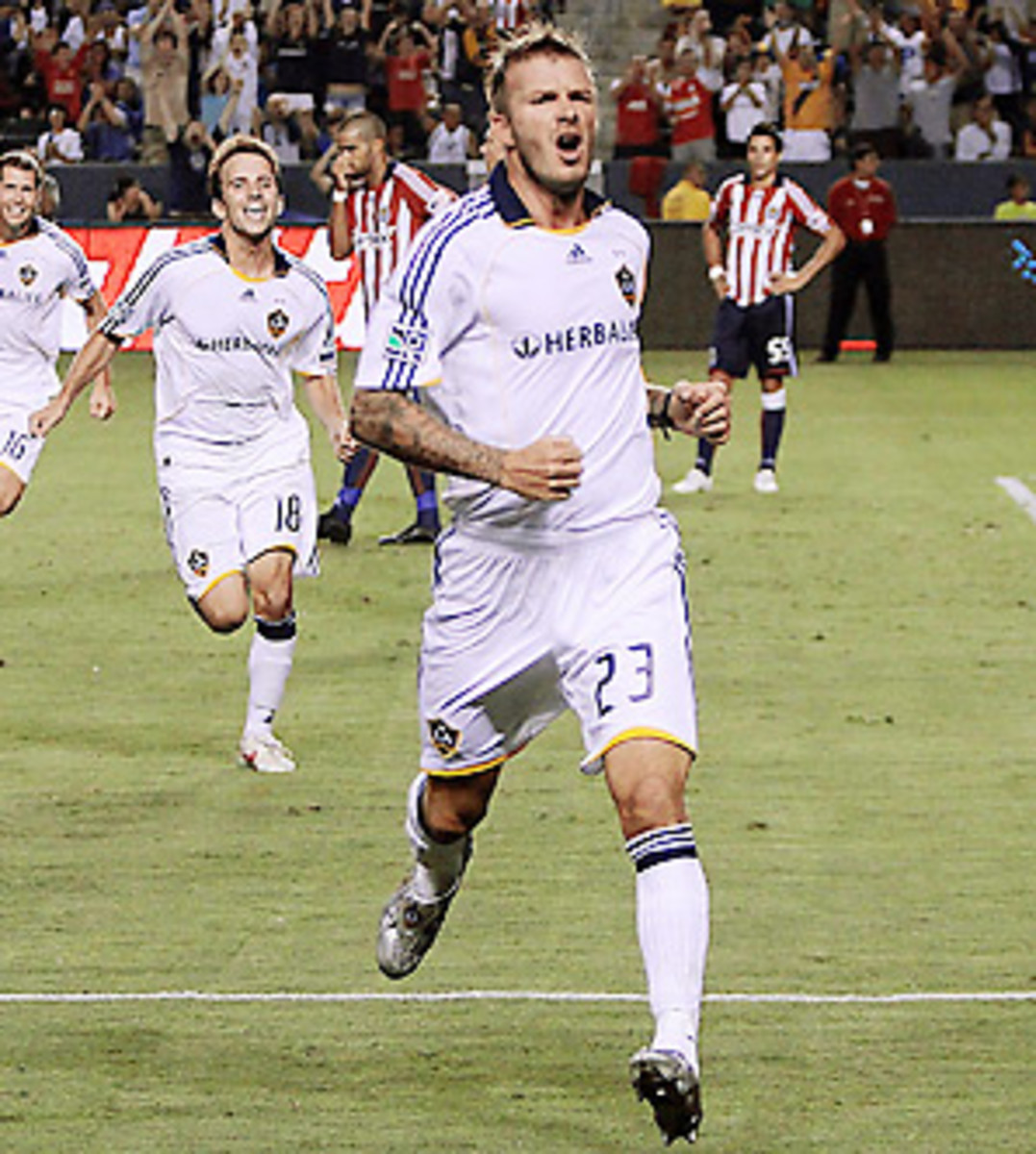L.A. derby finally means something
The odds seemed infinitely high. No way Toronto FC, FC Dallas, D.C. United and Colorado all would fail to get the required points. But that's how it goes in Major League Surprise.
And if you had told me last offseason that the Los Angeles Galaxy would win the Western Conference, I would've responded, "Yeah, and I'm engaged to Keira Knightley."
Seriously, how did that happen? Yes, as we all know, the club hired a real coach to replace the clown with the "sexy" accent and friends in the right places. But, as we also all know now, Bruce Arena built a defense that could, if not match the heavily armed attack, at least hold down the fort enough for the likes of Landon Donovan and David Beckham to amass the requisite lead.
(How much is New York now ruing its decision to boot Bruce Almighty after just one season? Then again, perhaps that blow in 2007 provided Arena with the jolt he needed to be successful again?)
So what do the Galaxy get for their fantastic turnaround? Exactly what we all had hoped for: a first-round playoff series with their "SuperClasico" rivals, Chivas USA.
I'm not religious at all, but ... Hallelujah! Finally, the SuperClasico is getting the win-or-go-home treatment. The Los Angeles derby is the only intracity rivalry we have in MLS, and although it has been spirited at times, it has never been do-or-die. (I'm not counting the teams' '05 meeting in the U.S. Open Cup because, well, it was the U.S. Open Cup.) Now it means something, um, meaningful. And we should all celebrate this, even if you live 3,000 miles away, like I do. Because these tense historical adversarial relationships make a league truly exciting.
This past weekend, some of the best rivalry games in the world took place. River Plate drew with Boca Juniors in the superest of superclásicos, the Big Papi of them all, if you will. Fenerbahçe thumped Galatasaray in the Istanbul derby. And Club América pipped Chivas de Guadalajara in the Mexican clásico. Plus, there was the Liverpool-Manchester United clash at Anfield, won by a moment of genius from Fernando Torres that sparked a massive whoop from a cluster of nose-ringed hipsters in Claddagh's in Columbus, Ohio, where I was.
For many fans around the world, fierce rivalries like these can represent the entire league. Ask the average soccer fan about Argentine fútbol, and odds are he'll mention River-Boca. Ask yourself: Can you name the third main club in Istanbul? And, sure, we in the States know the Mexican teams, but outside of CONCACAF, few people have heard of Pumas, Indios or Tecos.
The L.A. derby could -- and should -- be the representative, circle-it-on-your-calendar fixture for MLS. (Until New York gets a second team, at least.) Not only for fans outside the country, but also for sports fans in our own backyard. After all, sports fans (and sports media) love internecine skirmishes. And it doesn't get any more internecine than the Galaxy and Chivas USA. (Their two-leg Western Conference semifinal series kicks off Sunday.)
Baseball has its Subway Series, but this is a Hallway Series. The two clubs not only share a stadium, but their offices are down the hall from each other and the players use the same parking lot, practice yards apart and sometimes lift weights together. It's more than a little incestuous, but that makes it even more interesting.
But first it needs to mean something. All the great rivalries in the world have long non-manufactured, non-corporate-sponsored histories. Cup finals, player betrayals, titles won and lost on the last day of the season -- consequential events that infuse our memories of joy and heartbreak, depending on which side you're on that day, and build up the bitterness that makes for the best kind of competition.
Someday, the league will see its first single-market MLS Cup final. For now, though, the first intracity rivalry playoff series should be satisfying enough. The two teams are evenly matched (the Galaxy's fearsome attack against Chivas' stingy defense), there are plenty of marquee names and the result of the two matches will carry more weight than bragging rights. Finally, the SuperClasico will go from a mere local competition to a true derby.





